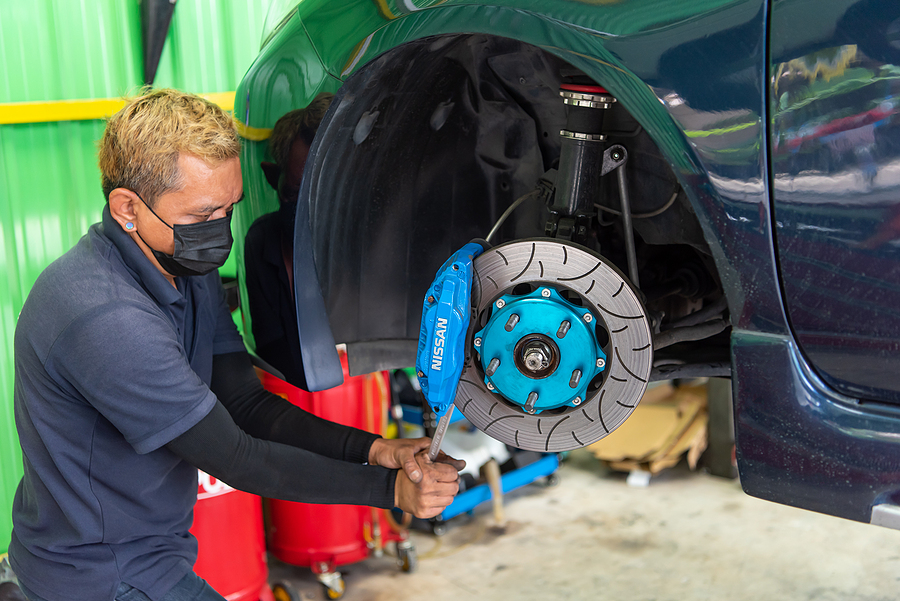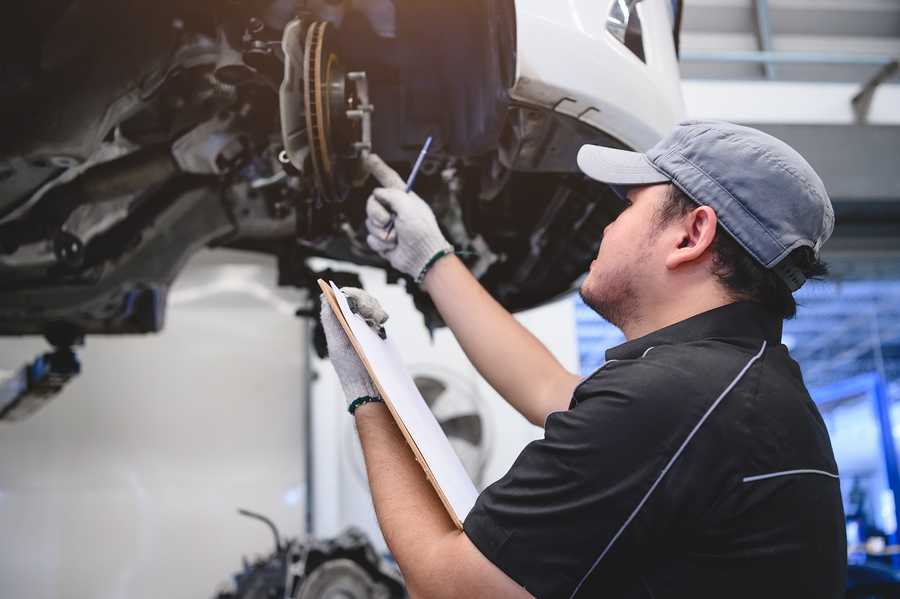Maintaining your car is an important part of keeping it running smoothly and safely. One of the most essential maintenance tasks you can do on your vehicle is to regularly check and replace its brakes. Knowing when it’s time to replace or repair your vehicle’s brakes can be tricky, as there are several signs that indicate a need for brake work.
To ensure that your car remains safe to drive, here are some tips on how you can know when it’s time to replace or repair your car brakes.

Average Cost of Car Brake Replacement
Car brake replacement is an essential part of maintaining the safety and functionality of your vehicle. When it comes to the cost, the average price of replacing brake pads and rotors on a car can vary depending on the make and model of the vehicle. On average, the cost can range from $150 to $600 for a brake pad replacement, and around $300 to $800 for a rotor replacement. However, keep in mind that additional expenses may occur depending on the state of your brake calipers, brake lines, and brake fluid. Regularly checking and servicing your brakes can save you money in the long run and give you peace of mind while on the road.
How to Tell If You Need to Replace Your Car Brakes
Listen for Unusual Noises: One of the most common signs that your brakes need attention is if you hear a squealing noise when braking. This is usually caused by worn brake pads and should be addressed immediately.
Check Your Brake Fluid Level: If you notice that your brake fluid level has decreased, it could mean that your brake lines are leaking or need to be bled. You should have this checked out as soon as possible if this happens.
Pay Attention to How Your Car Feels When Braking: If you feel any vibrating or pulsing while braking, it means that there might be an issue with your car’s rotors or drums. You should have them inspected and replaced if necessary to ensure your car’s safety.
Notice if it Takes Longer to Stop: If you find that your car takes longer than normal to stop, it could be a sign that your brakes need attention. This could indicate that there is an issue with the brake system or that the pads are wearing out and need to be replaced.
Inspect Your Brakes Visually: You should periodically inspect your brakes visually for signs of wear and tear such as rust, cracks, or even damage caused by debris. If you notice any of these signs, it’s time to have them checked and/or replaced.
By paying attention to these warning signs, you can help ensure that your car is safe on the road and prevent any further damage to your brakes. Regular brake maintenance is essential for car safety, so make sure to have your brakes checked and replaced when necessary. Doing so can save you from costly repairs down the line.
Ask a Mechanic When in Doubt
Always keep in mind that it’s important to have a qualified Indianapolis auto shop mechanic check out any problems with your brakes before attempting any DIY repair or replacement. It’s best to stay safe by having a professional take care of any issues as soon as possible. With proper care and regular maintenance, you can be sure that your brakes will remain functional and reliable for many years to come!
Conclusion
Knowing when it’s time to replace or repair your vehicle’s brakes can be tricky, but keeping an eye out for the warning signs can ensure that you get your brakes fixed before they cause any major damage. Regularly checking your brake fluid level, listening for strange noises, noticing how your car feels when braking and inspecting your brakes visually are all important steps to take in order to maintain the safety of your vehicle. Be sure to have a qualified mechanic in Indianapolis inspect and replace any worn parts so that you will be safe on the road. With proper care and attention, you can be sure that your car brakes will last for many years!
Are you worried that your vehicle’s braking system is in need of some immediate TLC? Contact Northeast Auto Service at 317-475-1846 for professional car brake repair and service in Indianapolis, Indiana. Request a free estimate, or schedule service, today.
Related Posts:
10 Tips for Keeping Your Brakes in Good Condition
Top 4 Signs of Failing Car Brakes
How Often Should I Bleed My Car Brakes?


